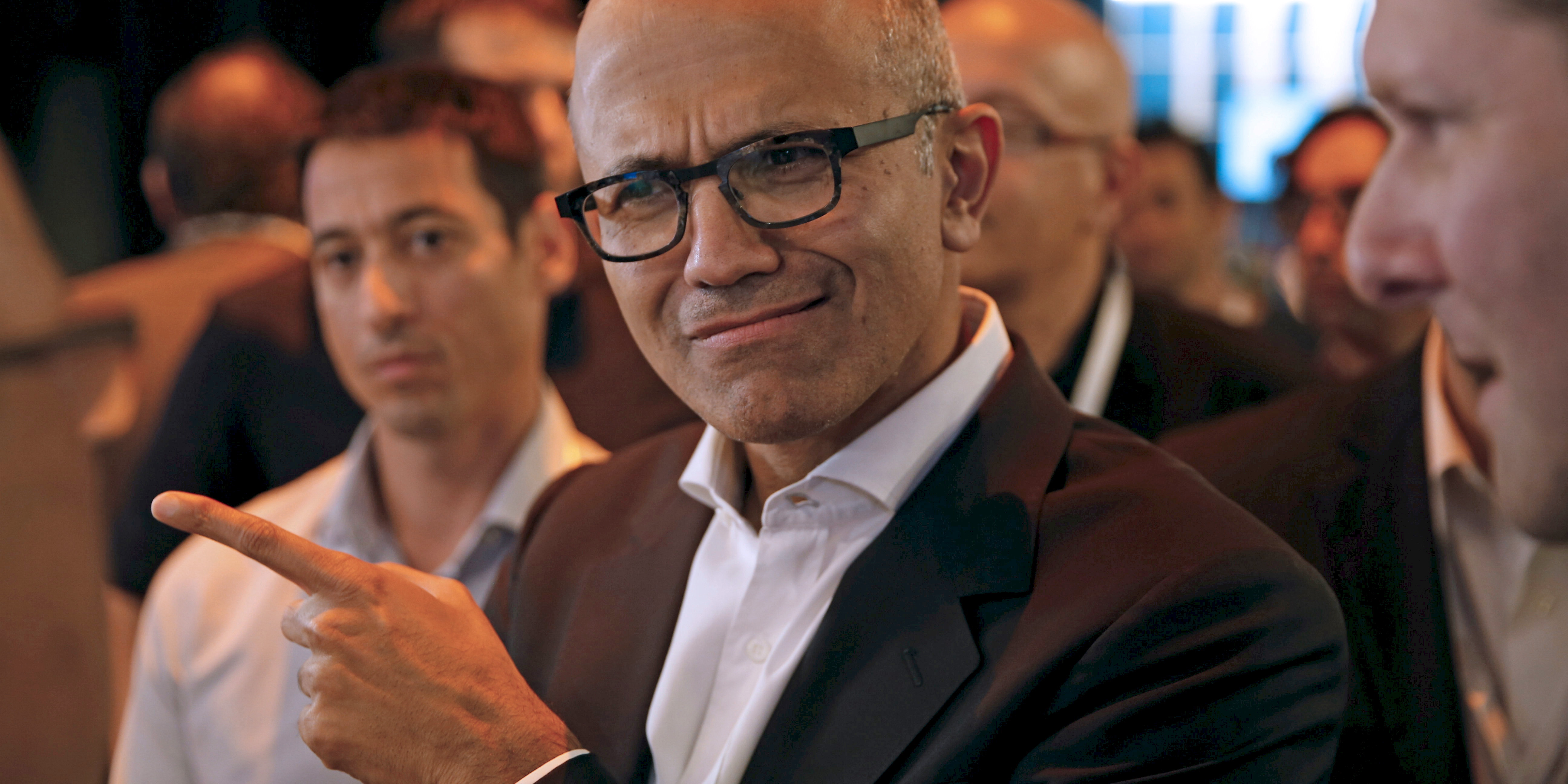- Microsoft is buying GitHub for $7.5 billion.
- When the deal closes, most likely later this year, it could give Microsoft a big edge against Amazon Web Services: GitHub has 24 million users, and Microsoft needs all the developer love it can get.
- More than that, if Microsoft can integrate GitHub with its Microsoft Azure cloud service, it could make a real difference to its cloud business.
On Monday, Microsoft announced that it was buying GitHub, the startup at the center of open-source software development, for $7.5 billion.
In the wake of the deal, one thing is very clear: It makes perfect sense for Microsoft to buy the startup. If the stars align, and GitHub is integrated intelligently into Microsoft’s products, it could give the company a big edge against Amazon Web Services, the leading player in the fast-growing cloud market.
Just to catch you up: GitHub is an online service that allows developers to host their software projects. From there, anyone can download those projects and submit improvements. That functionality has made GitHub the center of the open-source software development world.
On the most surface level, the logic of buying GitHub is pretty clear. Developers love GitHub, and Microsoft needs the love of developers.
Microsoft offers a whole swath of tools for developers, including the increasingly popular Visual Studio Code software and the open-source .NET Core programming framework. The popularity of these kinds of tools provides a gentle, but apparently effective, funnel toward the Microsoft Azure cloud and other Microsoft products and services - if you like one Microsoft product, it's more likely that you'll choose other Microsoft products, especially if they integrate cleanly.
GitHub would just add to that strategy: Developers already love GitHub - in fact, in 2017, Microsoft killed Codeplex, its own GitHub competitor, saying the startup's popularity made its own efforts redundant and unnecessary. By owning GitHub, Microsoft would have a direct line to millions of highly engaged developers. We've already seen baby steps in this direction, as GitHub and Microsoft just this month announced integrations between their services.
The big opportunity is in the cloud
There's a deeper play for Microsoft, though, with GitHub in the fold.

It's one thing to host software projects. GitHub has invested much of its considerable resources into the social-network aspects of the site, making it easier for teams and communities to work together on software.
It's another thing entirely to run a software project. Even once the software that's hosted in GitHub is fine-tuned and ready for prime time, the burden still falls on developers to download it and get it running. That's easy if it's a relatively simple tool that's intended to run on a single PC, but it's a lot harder if it's a massively complex open-source infrastructure tool that's intended to run on a massive public cloud like Amazon's, Microsoft's, or Google's.
So the opportunity for Microsoft is fairly straightforward. If it can get the Microsoft Azure cloud tightly integrated with GitHub - basically, give developers an easy way to get a GitHub project up and running in the cloud - it can kill two birds with one stone. Developers could love GitHub even more, and it would drive more use of Microsoft Azure.
Given that Microsoft is laser-focused on the continued explosive growth of its cloud-computing business, GitHub could fit right in. It would be a weapon in Microsoft's arsenal that it could use to close the gap between Azure and Amazon Web Services.
Indeed, on a conference call with reporters explaining the deal on Monday morning, Microsoft said that some of these integrations were already in the works - but that the company was committed to making sure GitHub was still an open platform, not specifically tied to Microsoft technology.
There's another, more subtle reason an acquisition could work out for Microsoft, too.
When Microsoft spent over $26 billion on LinkedIn, CEO Satya Nadella said the company was investing heavily in making sure that current and future workers had the skills they needed to succeed in the modern economy. In Silicon Valley, at least, it's not uncommon for an employer to ask for a GitHub profile alongside - or instead of - a traditional resumé. If Microsoft is trying to understand the modern skills economy, GitHub could provide a compelling glimpse.
Indeed, on that same conference call, Nadella said the GitHub push was about helping developers work together as software becomes key to doing business at almost every company.

